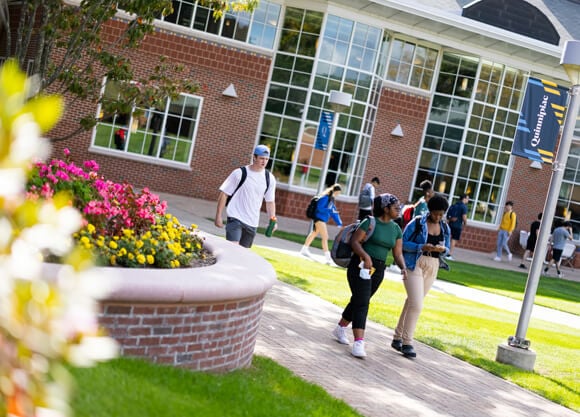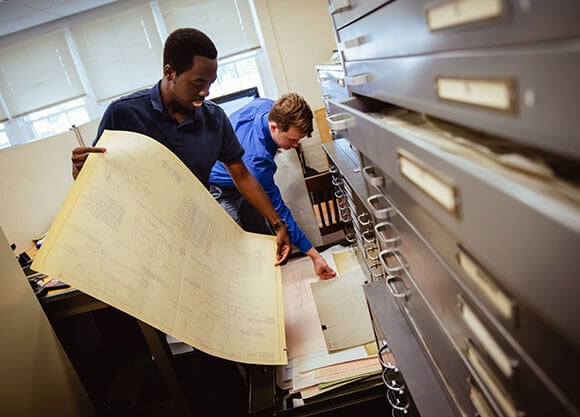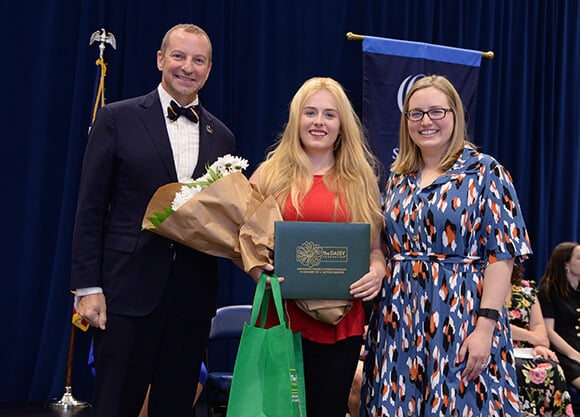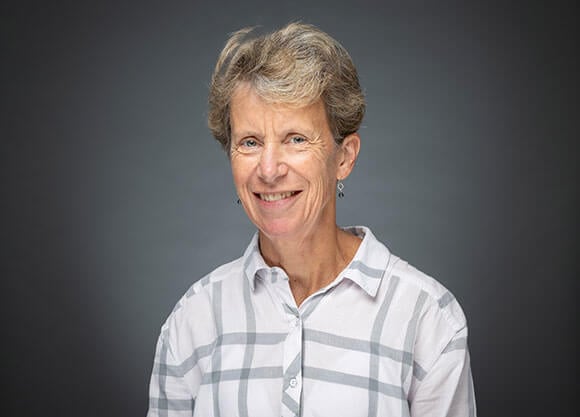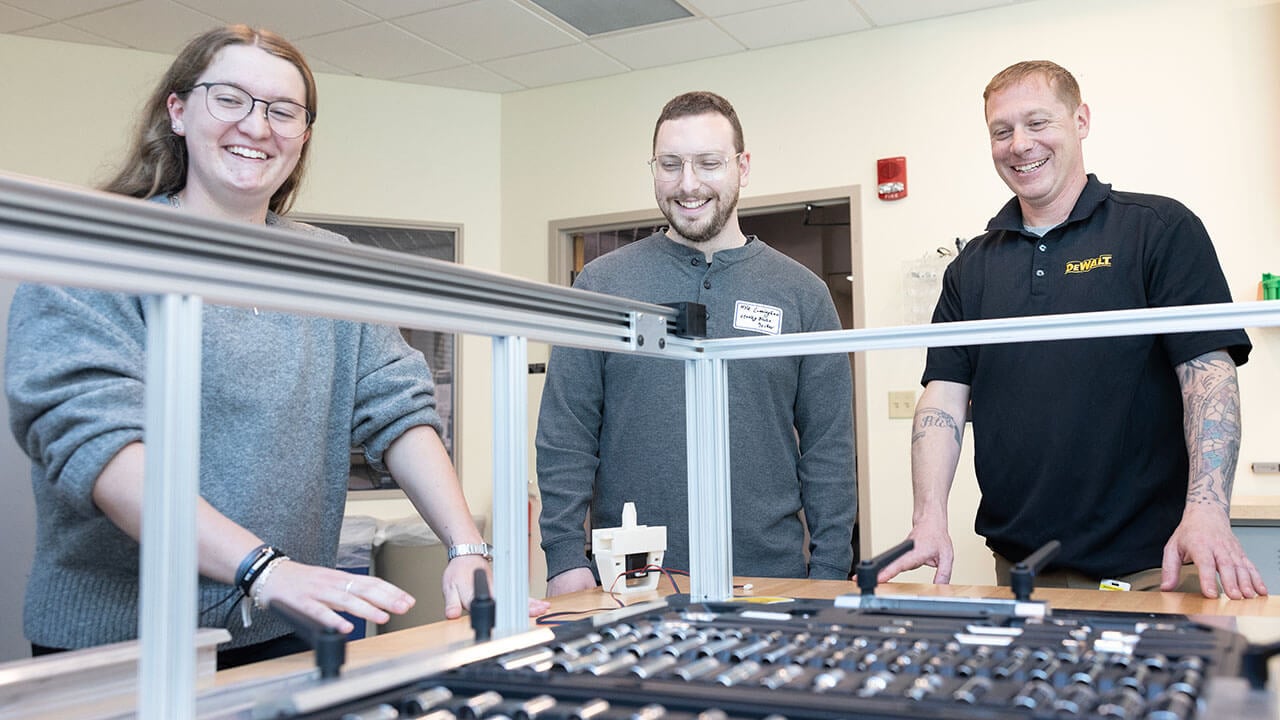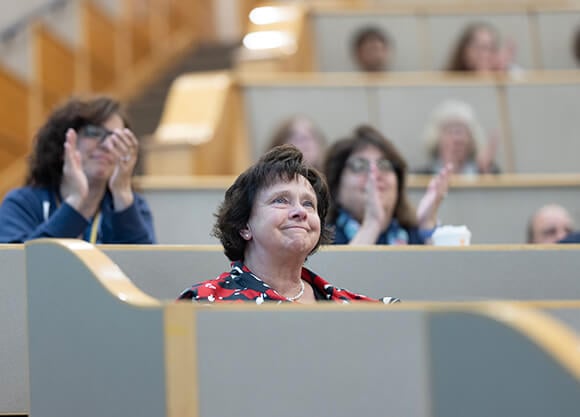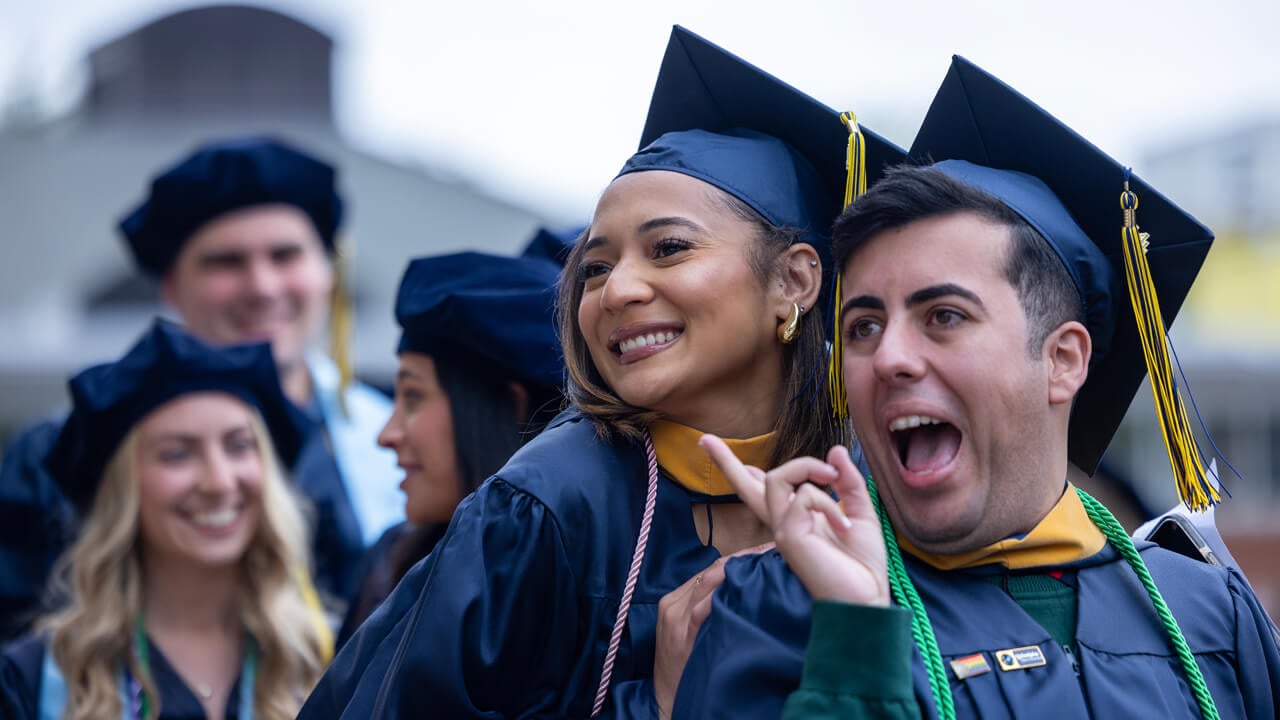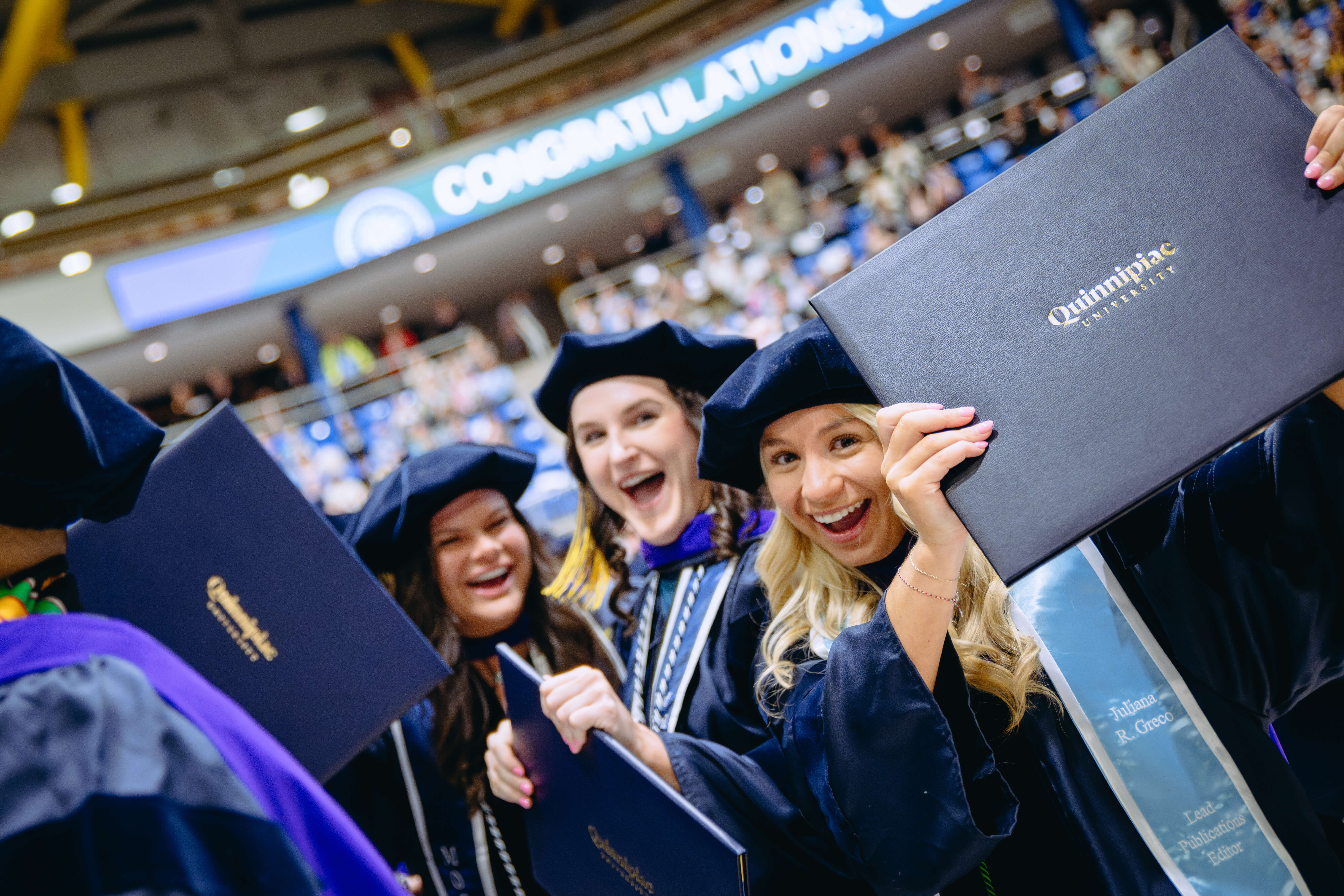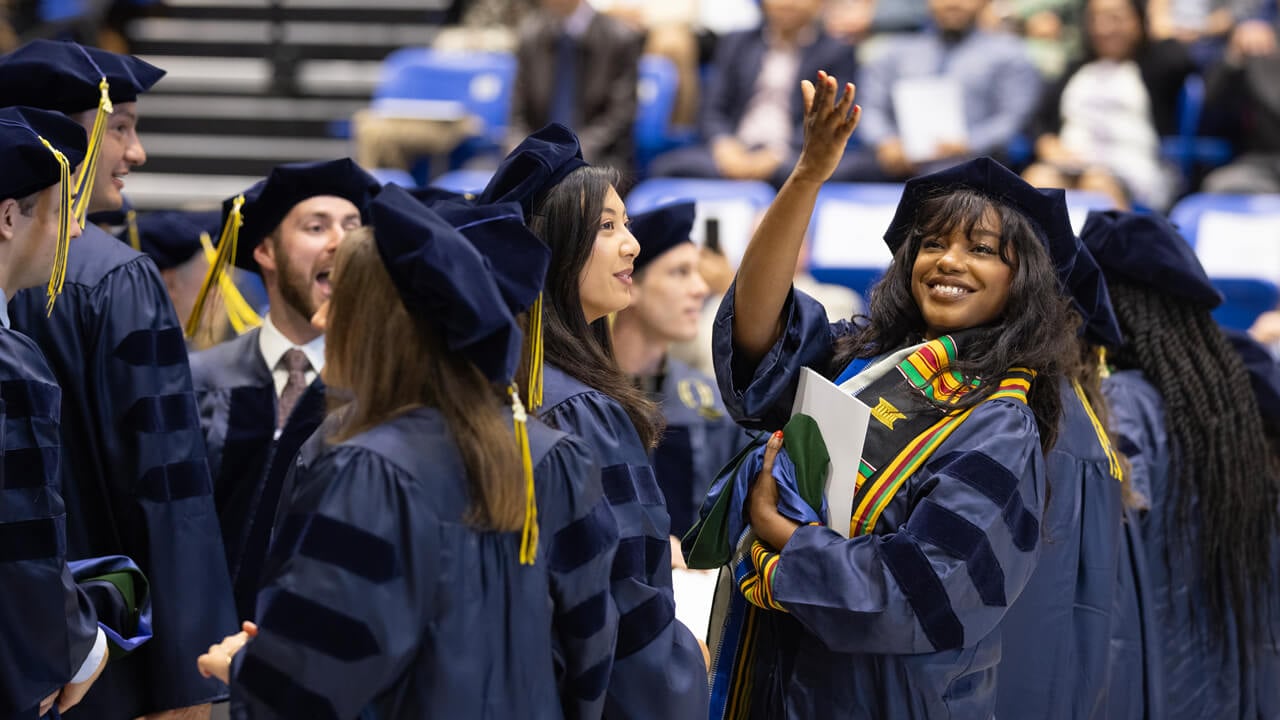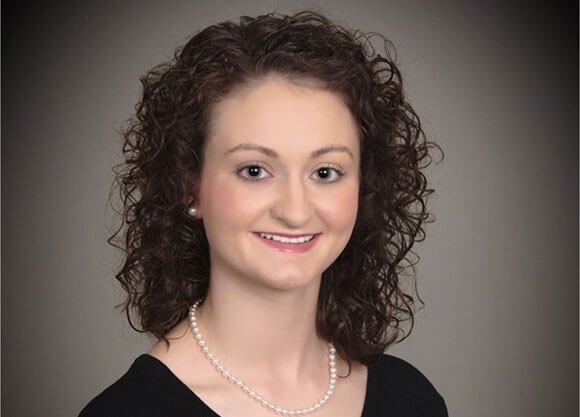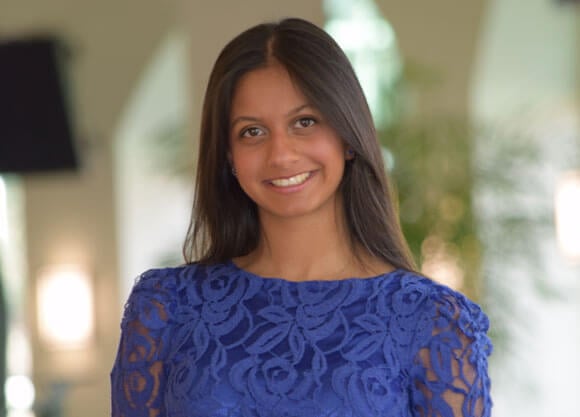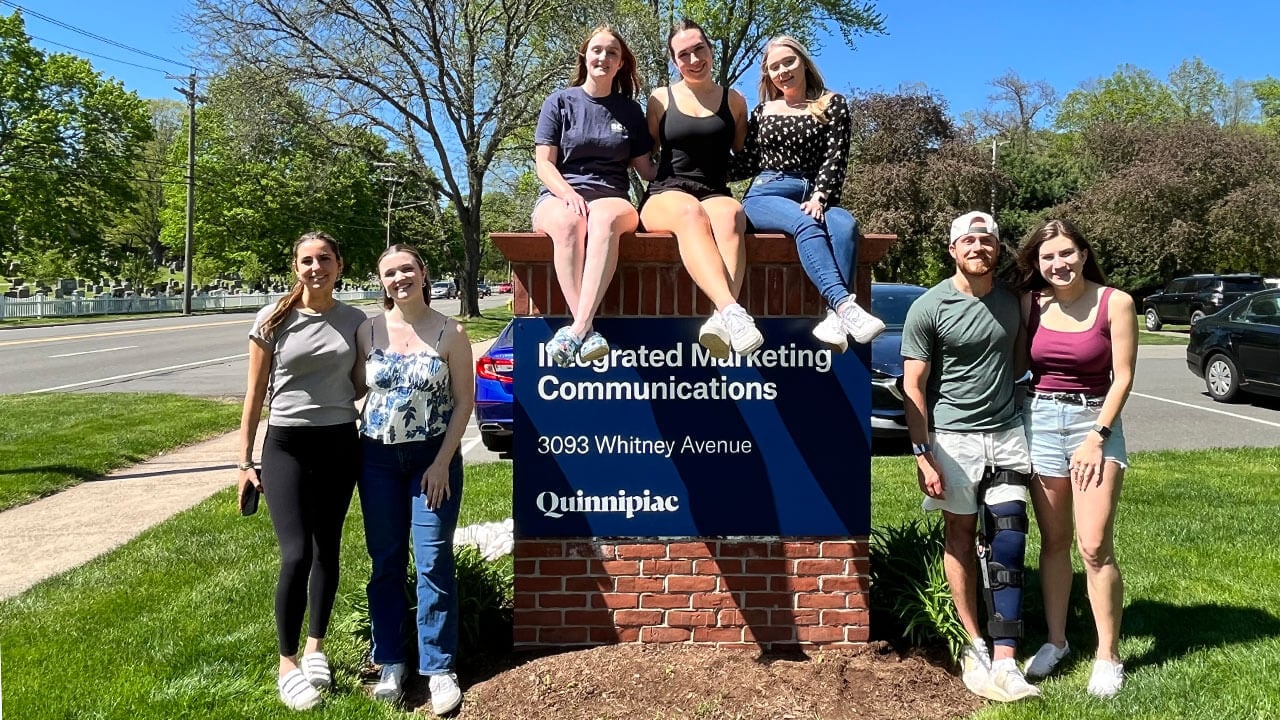
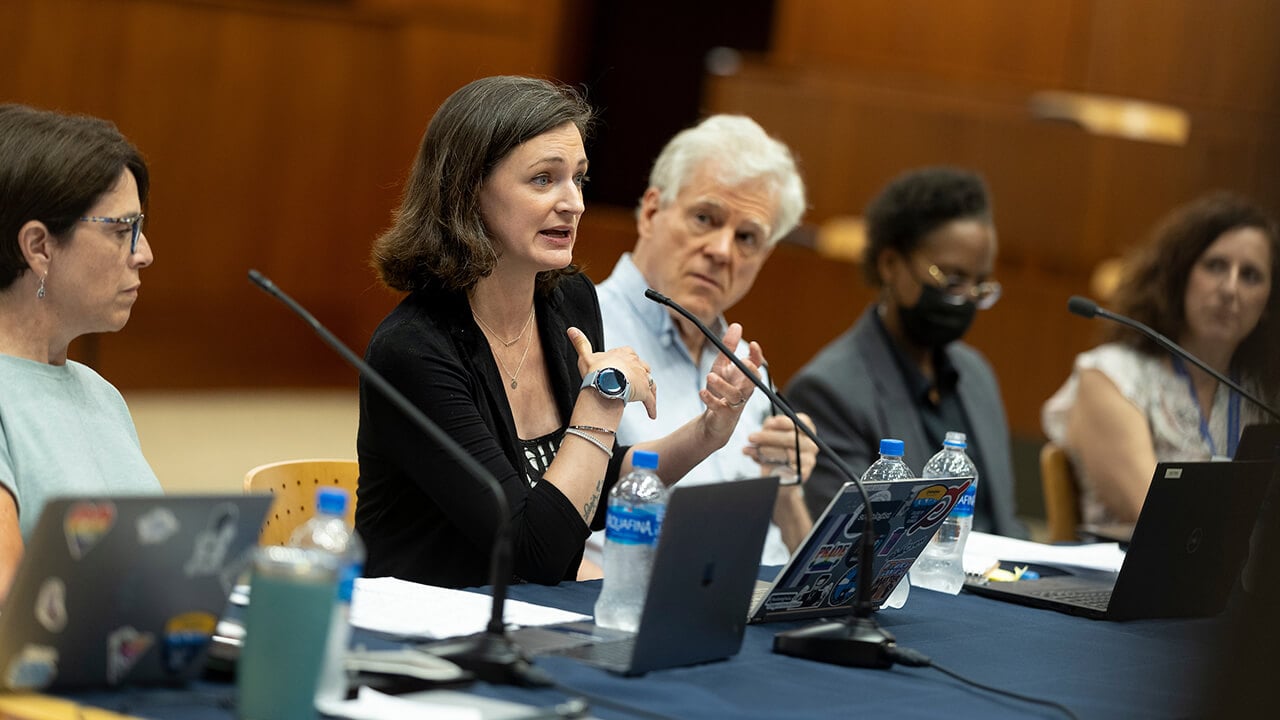
On June 24, the Supreme Court overturned Roe versus Wade, the 1973 decision that announced a federal Constitutional right to elective abortion, and returned the issue of regulation back to the states. Members of the Quinnipiac community were invited to analyze the Supreme Court’s decision through a range of lenses that drew on faculty expertise spanning a variety of disciplines and perspectives.
Quinnipiac Provost Debra Liebowitz moderated the July 19 event with opening remarks from President Judy Olian that underscored the importance of civil discourse and debate in a liberal arts education.
“We’re fortunate to be in an environment where we can draw on experts who provide fact-based arguments, and opinions, who are informed by years of research and close study of the issues across a variety of pertinent disciplines,” said Olian. “And that we are able to listen to and HEAR arguments that may be contrary to our personal positions without devolving into disrespectful or uncivil behavior. In so doing, we embody our institutional purpose of developing enlightened global citizens.”
In an open and balanced discussion, the panelists discussed arguments for and against overruling Roe versus Wade, and addressed potential legal developments of the Dobbs decision, including the impact on healthcare systems, precedent in court decisions, state protections, federal power and the role of privacy as the basis of other rights.
The conversation included audience questions and examined the legal, social, medical, economic and political consequences that may result from the Supreme Court’s ruling. The panelists also explored how the ruling underscores healthcare inequities that exist for children and women of color who live in poverty and have limited access to adequate healthcare.
Panelists included:
-
Carol Awasu, professor of social work, chair of social work and director of the master’s in social work program. Awasu teaches on issues of diversity and oppression, examines the dynamics of racism and other forms of oppression in society and within us, and how those dynamics are intertwined with policy and practice.
-
Stephen Gilles, professor of law, whose research interests include constitutional law and parental and reproductive rights.
-
Jennifer Sacco, professor of political science and women’s and gender studies, and chair of the Department of Philosophy and Political Science. Her research focuses on gender and American politics and questions of representation.
-
Lauren Sardi, professor of sociology and women’s and gender studies, and director of the Women’s and Gender Studies Program, with a joint appointment as a professor of medical sciences. Sardi’s research interests include feminist theory and methodology, gender and sexualities, and human rights.
-
Stacy Spiro, OB/GYN clerkship director and OB/GYN physician. She provides care to a diverse patient base across various practice types.
-
Gladys Vallespir Ellett, assistant professor of nursing. Her practice and research career have focused on perinatal and family education around birthing. Her passion is to empower families to make optimal healthcare decisions that meet their values and needs.
In this Article
Stay in the Loop
Quinnipiac Today is your source for what's happening throughout #BobcatNation. Sign up for our weekly email newsletter to be among the first to know about news, events and members of our Bobcat family who are making a positive difference in our world.
Sign Up Now